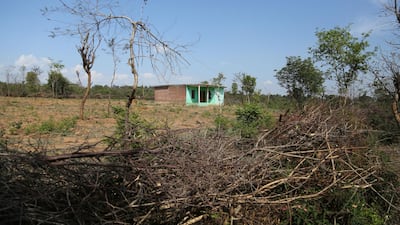Few can have failed to have been horrified and sickened by the abduction, gang-rape and murder of an eight-year-old Muslim girl in a Hindu temple in Jammu and Kashmir last year. As a court in India convicted six men for their part in the killing on Monday, her family and community got the verdict they had been hoping for. It was vital to see justice done in a nation which has witnessed too many incidents of its kind.
In the contested region of Kashmir in particular, incidents of sexual violence against Muslim girls and women have been rife since the 1980s, with security forces often turning a blind eye or being complicit. A recent UN report said offences took place with impunity on both sides of the Line of Control. The victim’s lawyer herself had to be given police protection after she was inundated with threats of rape and murder. That, and the fact that many expected an acquittal, illustrates just how deep India’s fractures go. The men who drugged, assaulted and bludgeoned to death a child, ostensibly as a message to her nomadic tribe, used a holy site as the backdrop to their brutality and included a retired government official and temple priest, police officers who destroyed evidence and an underage relative of the instigator.
Monday’s sentence might give her family some sense of justice but as her mother said: “My daughter’s face still haunts me and that pain will never leave.” And while revulsion at these crimes should be universal, the conflicted response to them reflects a culture of communal hatred and impunity – one in which Hindu nationalists receive protection from members of the political establishment, transforming them from violent criminals to foot soldiers in a war for India’s future. This process has been ongoing for years but has accelerated under prime minister Narendra Modi, whose BJP party has maligned minorities, including Muslims.
The little girl’s murder in Kathua is a symptom of such a mindset, which even infiltrated the legal system, as state lawyers staged a strike and the victim’s lawyer had to insist: “We did not…initiate an anti-Hindu movement. We only wanted the court to monitor the investigation.” The right-wing Hindu Ekta Manch group also organised mass protests, attended by two BJP ministers. Such was the uproar in Jammu and Kashmir that the case had to be moved to a special court in Pathankot, Punjab.
Yet it took three months for Mr Modi to condemn a crime that shocked his nation. His statement that no culprit would be spared needs to be followed with strong action to penalise the perpetrators of all such crimes. India is a diverse nation with phenomenal potential but it faces a challenge in dealing with its communal struggles. Rhetoric from the BJP has only fanned the flames. When Mr Modi secured re-election in a landslide win last month, he promised a more inclusive society. Now is the time to follow through on that pledge.


